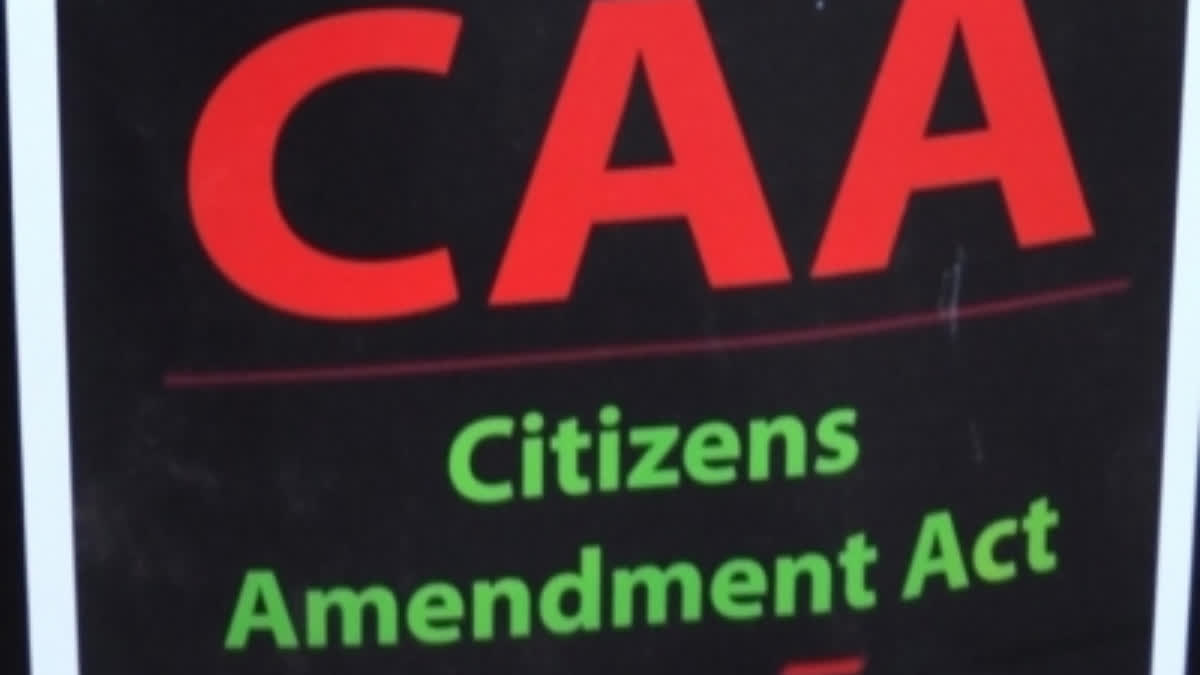Jammu:With the Centre notifying the rules of CAA on Monday, the demand of relocation of Rohingya refugees settled in Jammu has come to the fore with some political parties and social organisations batting for fulfillment of their demand, while the opposition is calling it a move to polarise the electorate.
According to government data, over 13,700 foreigners, including Rohingya Muslims and Bangladeshi nationals, are settled in the Union Territory (UT) of Jammu and Kashmir, where their population increased by over 6,000 between 2008 and 2016. "The decision of the government to implement CAA is purely vote bank politics by the BJP. They are trying to get benefit by polarising the electorate," National Conference (NC) leader and former minister Ajay Sadhotra told PTI.
However the BJP welcomed it by saying that it is a relief to the persecuted persons. "We welcome the decision of the government. It is a good step to grant citizenship to persecuted persons," J-K BJP chief spokesperson Sunil Sethi told PTI. He said issues like Rohingya refugees settled in Jammu and Kashmir should be addressed by removing them from Jammu as they are a threat to security of the UT.
They are a burden on the resources of this country and they have no reason to reach Jammu from 3,000 kilometers away from the border area they have come from, Sethi said, adding that there is obviously some plan in this. J-K Congress spokesman Kapil Singh hit out at the BJP government by saying that it is purely a step towards polarisation.
"Prime Minister Narendra Modi and the BJP government are claiming huge development in the country but it is clear that they want to take advantage of polarisation for electoral gains. This is a step towards that," Singh said. The Shiv Sena Dogra Front (SSDF), while welcoming the decision of the government, called for deportation of the Rohingya Muslims and Bangladeshis back to their countries.
"We welcome the decision of the government. But we have been batting strongly that Rohingyas and Bangladeshis settled in Jammu should be deported back to their countries. There were huge agitations in this regard," SSDF president Ashok Gupta said. Rakesh Kumar of Bajrang Dal also welcomed the move and called for immediate shifting of illegal immigrants in Jammu.
The rules for implementation of the contentious Citizenship (Amendment) Act, 2019 (CAA) were notified on Monday, paving the way for granting of citizenship to undocumented non-Muslim migrants from Pakistan, Bangladesh and Afghanistan, officials said. With the CAA rules being issued, the Modi government will now start granting Indian nationality to persecuted non-Muslim migrants from Bangladesh, Pakistan and Afghanistan who came to India till December 31, 2014. These include Hindus, Sikhs, Jains, Buddhists, Parsis and Christians.
The CAA was passed in December 2019 and subsequently got the president's assent but there were protests in several parts of the country against it. The law could not come into effect as rules had not been notified till now. Following massive protests and agitation by most of the political and socio-religious parties in Jammu, the administration and police carried out a massive crackdown against the illegal immigrants in Jammu and Kashmir since 2021 to identify, isolate and put them in lodging centres.
During a verification drive in March 2021, the police found over 270 Rohingya Muslims living illegally in Jammu city and subsequently lodged them in a holding centre inside the Kathua sub-jail. The arrests were made from Kishtwar, Ramban, Poonch and Rajouri districts, while 100 Rohingya and Bangladeshi nationals were booked, the officials said.
Over 110 FIRs have been lodged against those giving shelter to them and helping them in getting Aadhaar and other cards, they said. Cases have been registered against people accused of providing shelter to the foreign immigrants in Satwari, Trikuta Nagar, Bagh-e-Bahu, Channi Himmat, Nowabad, Domana and Nagrota police stations.
During these searches, which were conducted in the presence of the magistrates, the police seized illegally-acquired Indian documents like PAN and Aadhaar cards and bank documents.
